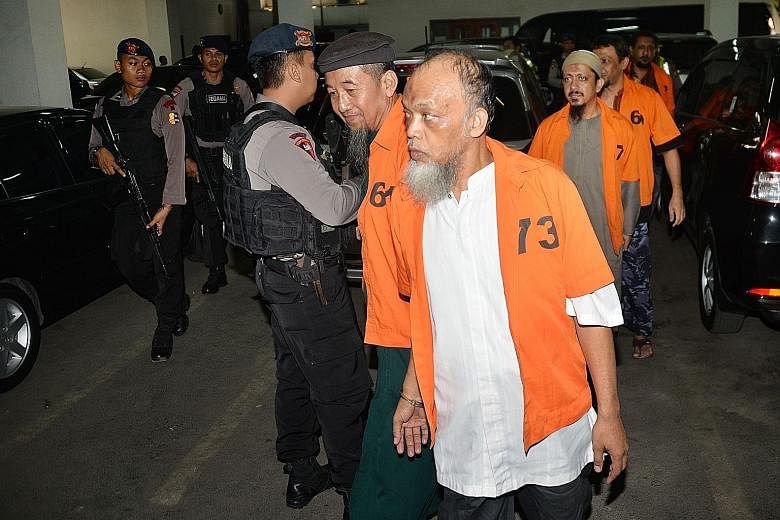Indonesia is against the Islamic State in Iraq and Syria (ISIS) and supports resolutions at the United Nations condemning the violent acts of terror committed under the black banners of the extremists.
The South-east Asian nation, home to the largest Muslim population in the world, has also banned all forms of ISIS manifestations since August last year, but it has resisted a move to join the multi-national coalition fighting the terror group.
Former Foreign Minister Marty Natalegawa revealed in a June inteview with The Sydney Morning Herald that Indonesia was asked by the United States to join the fight against ISIS in Iraq, but it declined over concerns of a backlash by domestic radical Muslim groups.
Dr Marty said Indonesia felt it would be more effective tackling the problem of extremism at home, whereas sending forces would be "cosmetic".
Indonesian troops, however, have been deployed to conflict regions like Africa and the Middle East, but only as peacekeepers or to help resolve conflicts between nations, said Major-General Tatang Sulaiman yesterday.
The spokesman for the Indonesian armed forces (TNI) confirmed that there are still no plans to send TNI troops to Syria to fight ISIS. "We send troops overseas only when the UN asks us, and even so it would be for peacekeeping missions," he added.
The country's position to not send ground troops to support the US-led coalition force remains despite the rising threat of ISIS as seen from the deadly attacks on civilian targets in Paris, sources told The Straits Times yesterday.
Unlike the US and its allies, Indonesia continues to recognise the government in Damascus as the sole legitimate authority in Syria.
Indonesia's National Counter-Terrorism Agency said 162 Indonesians have been deported from Turkey.
All have been released because there are no laws that allow for preventive detention in Indonesia, even though some had intended to join ISIS. But 46 among them who are men of "fighting age" remained under surveillance by counter-terrorism operatives.
As many as 30 militant elements from Indonesia, Malaysia and the Philippines are believed to have pledged allegiance to ISIS in the past year - evidence of the group's growing influence in the region.
Latest estimates from security agencies in Indonesia, Malaysia, Singapore and the Philippines show at least 900 from all four countries have travelled to join ISIS in Syria. The largest number, about 700 of them, are from Indonesia.

